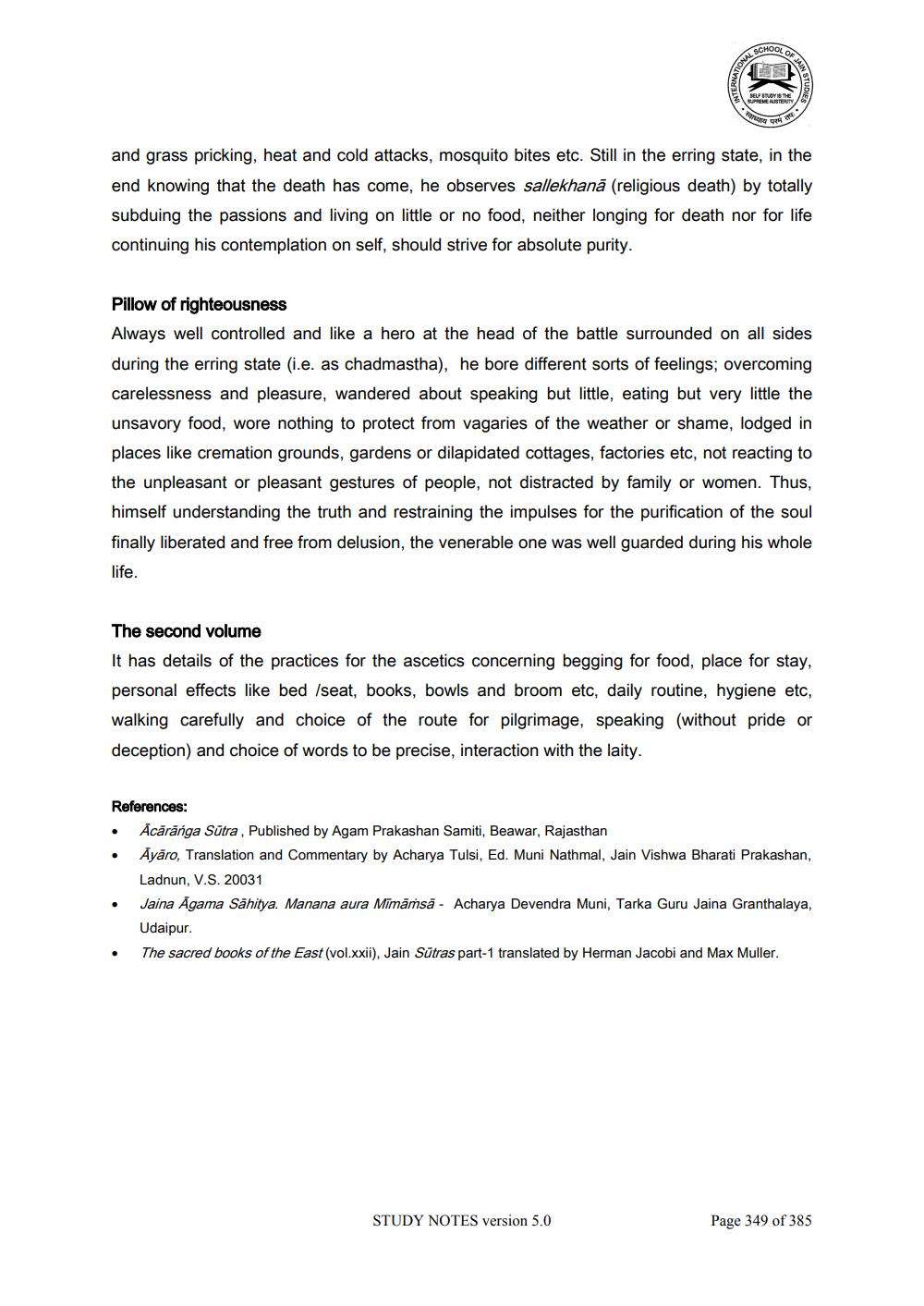________________
SELF BUDYIS THE
and grass pricking, heat and cold attacks, mosquito bites etc. Still in the erring state, in the end knowing that the death has come, he observes sallekhana (religious death) by totally subduing the passions and living on little or no food, neither longing for death nor for life continuing his contemplation on self, should strive for absolute purity.
Pillow of righteousness Always well controlled and like a hero at the head of the battle surrounded on all sides during the erring state (i.e. as chadmastha), he bore different sorts of feelings; overcoming carelessness and pleasure, wandered about speaking but little, eating but very little the unsavory food, wore nothing to protect from vagaries of the weather or shame, lodged in places like cremation grounds, gardens or dilapidated cottages, factories etc, not reacting to the unpleasant or pleasant gestures of people, not distracted by family or women. Thus, himself understanding the truth and restraining the impulses for the purification of the soul finally liberated and free from delusion, the venerable one was well guarded during his whole
life.
The second volume It has details of the practices for the ascetics concerning begging for food, place for stay, personal effects like bed /seat, books, bowls and broom etc, daily routine, hygiene etc, walking carefully and choice of the route for pilgrimage, speaking (without pride or deception) and choice of words to be precise, interaction with the laity.
References:
Acārānga Sūtra, Published by Agam Prakashan Samiti, Beawar, Rajasthan • Ayāro, Translation and Commentary by Acharya Tulsi, Ed. Muni Nathmal, Jain Vishwa Bharati Prakashan,
Ladnun, V.S. 20031 Jaina Agama Sahitya. Manana aura Mimāṁsā - Acharya Devendra Muni, Tarka Guru Jaina Granthalaya, Udaipur. The sacred books of the East (vol.xxii), Jain Sūtras part-1 translated by Herman Jacobi and Max Muller.
STUDY NOTES version 5.0
Page 349 of 385




